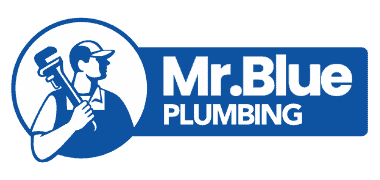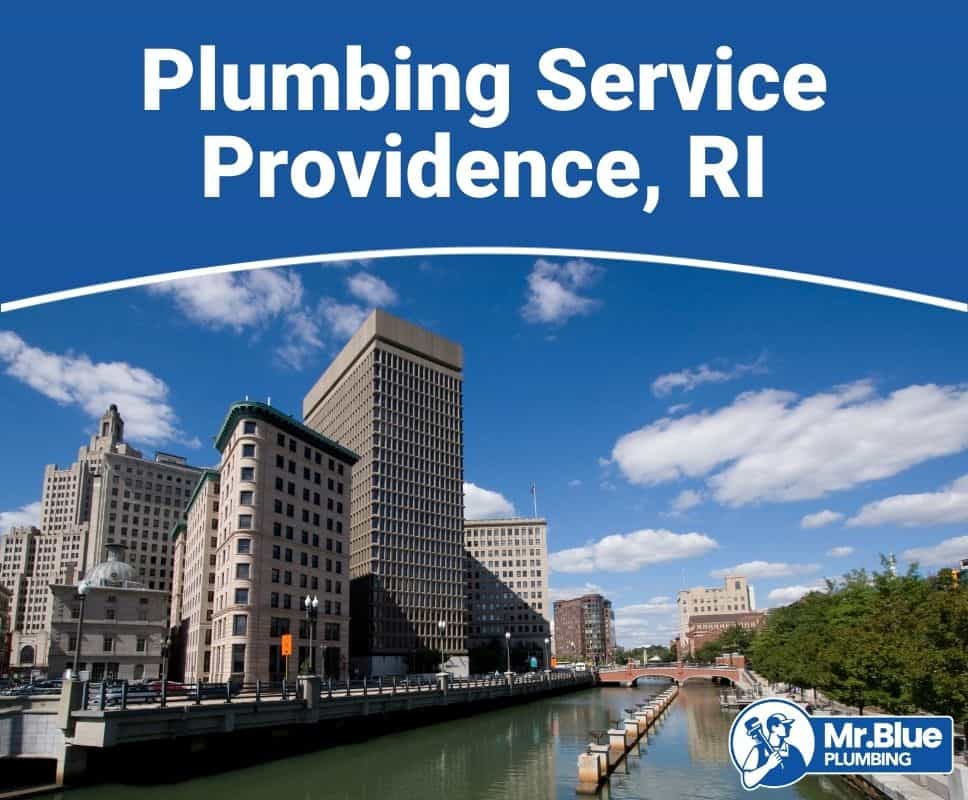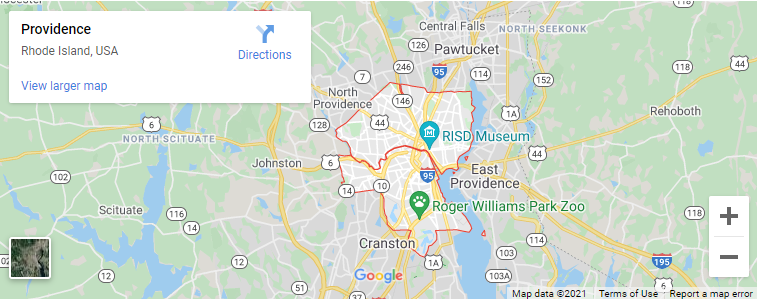Contents (Click To Jump)
- 1 What Are the Most Common Plumbing Issues in Providence?
- 2 How Does the Water in Providence Affect Your Plumbing?
- 3 How Much Does Plumbing Usually Cost in Providence?
- 4 Can Better Plumbing Save You Money in Providence?
- 5 When Should You Call the Water Utility Company in Providence vs. Hire a Plumber?
- 6 When Do You Need Permits for Plumbing Service in Providence?
What Are the Most Common Plumbing Issues in Providence?
The first plumbing in Providence was built just before the Revolutionary War when a system of hollowed-out logs was installed underground. In the intervening years, thankfully, plumbing has dramatically improved. Unfortunately, that does not mean that our homes are free from plumbing issues, and some problems occur more frequently than others.
Leaky Pipes and Fixtures
One of the most common complaints most plumbers hear about is leaky pipes, faucets, and other fixtures. These critical parts of our plumbing can leak based on age, corrosion, physical damage, changes in water pressure, worn gaskets, and other reasons. Fixing leaks promptly can often result in a less expensive, less complicated repair.
Clogs and Slow Drains
Another very common plumbing call is for slow drains or fully clogged, stopped drains. Slow drains can be a nuisance, and when those drains are completely stopped, they can be even worse. If you’ve tried to get things moving again with a plunger or even a drain snake and had no luck, it’s probably time to contact our plumbers for help. We have the professional-grade equipment to get the job done and can inspect your pipes to help ensure they don’t clog again anytime soon.
Lead in Your Water
With such a large stock of older homes built over the previous 300-some years, many have yet to enjoy completely updated plumbing. While this can certainly mean problems with worn, corroded, or otherwise weakened pipes and connections, a more troubling problem is found in older pipes that may have lead content or lead soldering. Before 1940, Providence homes from College Hill to Olneyville and everywhere in-between may have had lead service lines (the line from the water meter into your home). Replacing those lead service lines is critical to the health and safety of the water in your home, especially if you have infants and young children, who are most vulnerable to lead’s toxic effects. To help homeowners who have the old lead service lines, Providence Water offers 10-year, 0% interest loans to aid in replacing your side of the service line (from the water meter to your home). Providence Water automatically replaces the public side of the lead supply line at no cost whenever you arrange for your work to be done.
How Does the Water in Providence Affect Your Plumbing?
Most of the water in Providence comes from the Scituate Reservoir, and Providence Water delivers that water through over 1,040 miles of pipes that range from narrow, six-inch pipes to massive 102-inch pipes. Some of these pipes are unlined, cast iron, and date back to around 1900 when much of the municipal plumbing system was being greatly expanded, though many areas have been updated in the decades since then. While our water in Providence is generally of good quality, it is very soft, making it more corrosive and more able to absorb lead and other substances from the pipes through which it travels.
About Water “Hardness” in Providence
When people describe the “hardness” of water, not everyone understands what that means. Specifically, it describes the volume of dissolved minerals (usually calcium carbonate and magnesium carbonate) in water, measured in grains per gallon (gpg). Providence has water that is usually rated as very soft with an average 2.3 gpg measurement. As mentioned, that means it can corrode pipes more easily and can leach metals like lead from pipes as it travels through them, or more often, when it sits still in pipes. On the positive side, softer water creates less mineral buildup inside your pipes, aerators, showerheads, and other fixtures, and leaves fewer spots on your dishes and glassware. Softer water also requires less soap, shampoo, and detergent to do a good job cleaning.
How Much Does Plumbing Usually Cost in Providence?
Installing, renovating, and repairing plumbing involves a lot of work with the unknown, from what’s inside walls to what’s under the ground. Because of that, plumbing costs can vary quite a bit, and many homeowners may delay having work done, fearing it will be too expensive. While some plumbing work can be on the expensive side, the vast majority of plumbing work in Providence ranges from a low of about $125 to a high of about $800. That makes the average job without major complications about $450. Of course, numerous details about a particular plumbing job can have an effect on the overall cost. Here are some of the most common factors that influence plumbing prices in Providence.
Cost Factor: Type and Scope of Work
The type of plumbing job and how much work it requires is probably the major factor that affects how much it will cost. Replacing a kitchen faucet or unclogging a toilet or sink is normally well into the lower range of prices, while repairing a broken sewer line or replacing your old cast iron bathtub with a walk-in shower will be in the higher range. The older plumbing in many Providence area homes may also not be able to adequately work with some newer fixtures or appliances which may require differently sized supply lines, drainage capabilities, or other adjustments to your existing plumbing. In addition, older plumbing may not meet current code requirements which may affect your home’s value if you are planning to sell it.
Cost Factor: Permits and Other Expenses
Most plumbing work, outside of minor services, repairs, and maintenance, will require a permit from the city’s Plumbing Division. This will add to the cost as will any inspections the Department may also require. Many of our Providence homes are decades, if not centuries old, and many plumbing systems and repairs to them may have been made in any number of unusual ways. Encountering the unexpected can certainly add to your costs, as can any specialized equipment needed to complete your plumbing work.
Cost Factor: Materials, Supplies, and Labor
One of the cost factors that is often out of our control is the price of materials and supplies needed. The cost of copper, which is used for many household pipes, can fluctuate wildly. Additionally, logistics and supply obstacles can also affect both the availability and cost of the materials and supplies we need for even very basic repairs. With the large number of historic properties around Providence, the costs involved in making careful, approved installations and repairs can also greatly affect prices. Finally, emergency calls outside of our normal operating hours can also add a surcharge to your plumbing costs.
Can Better Plumbing Save You Money in Providence?
In short, the better your plumbing, the more you’ll save. Here are some of the most effective ways to do so.
Fix Leaks and Drips
Every leaky pipe, dripping faucet, and toilet that keeps running sends money down your drain. The average American household wastes nearly 10,000 gallons of water each year due to these kinds of minor plumbing issues — that’s about 400 extra showers or nearly two years’ worth of washing your laundry. Small leaks can also turn into larger ones or can be indications of more serious problems, such as water dripping inside a wall or leaks in your underground pipes. Taking care of small issues can help prevent large (and expensive) ones from arising.
Upgrade Fixtures and Appliances
Replacing traditional showerheads and faucets with low-flow versions can help you save water (and money), as can upgraded toilets, washing machines, dishwashers, and others. Many of these are tasks you may want to do yourself, or you can always contact our plumbers for assistance.
Keep Up with Slow Drains
Countless homeowners ignore slow drains or attempt to treat them with caustic chemicals, often doing more harm by corroding the pipes than effectively clearing them. Attending to a slow or clogged drain promptly can help prevent more serious clogs from forming and possibly damaging your pipes. Frequently slow or clogged drains can be an indication of mineral buildup in your pipes, damaged pipes, or bigger trouble further down the drain line such as tree roots causing a blockage or other problems.
Regular Maintenance
Just like changing the oil in your car or replacing your furnace filters, a little plumbing maintenance can help your household pipes and fixtures run more efficiently and last longer, saving you money. Some regular maintenance our plumbing experts can perform includes:
- Flushing your water heater
- Checking your water heater’s anode and replace it if needed
- Clean faucet aerators
- Checking pipes and faucets for leaks and drips
- Keeping drains clear
It’s a good idea to contact us to schedule regular underground line inspections to examine them for any small breaks or other problems. A tiny crack is all a tree’s roots need to infiltrate your lines and cause a blockage requiring sewer line excavation and other expensive plumbing repairs.
When Should You Call the Water Utility Company in Providence vs. Hire a Plumber?
In general, this depends on the type of plumbing problem you’ve encountered. Most of the time, this question arises when you either don’t have water or if you have sewer problems. If your plumbing issue affects your home and your close neighbors, it’s likely to be a municipal water or sewer issue (on the city side of your water meter), and you should contact Providence Water. If the problem is limited to your home, it’s most likely a problem on your side of your water meter, and you’re better off calling our plumbers. Providence Water also offers a Water Quality Hotline ((401) 521-6300 Opt. 4), which is a good start if you have water pressure issues or you find your water has an odd look or smell.
When Do You Need Permits for Plumbing Service in Providence?
The Plumbing Division of the City of Providence “oversees all work related to the installation, alteration, repair and replacement of plumbing systems, including equipment, appliances, fixtures, fittings and appurtenances, and where connected to a water or sewage system and repairs to systems to all aspects of a medical gas system”. To help fulfill that mission, permits and inspections are required for most plumbing work in Providence, except for very basic repairs and maintenance. The Plumbing Division or our licensed plumbers can help you determine whether or not your plumbing work requires a permit and/or an inspection.






